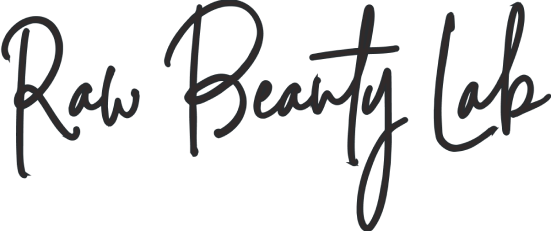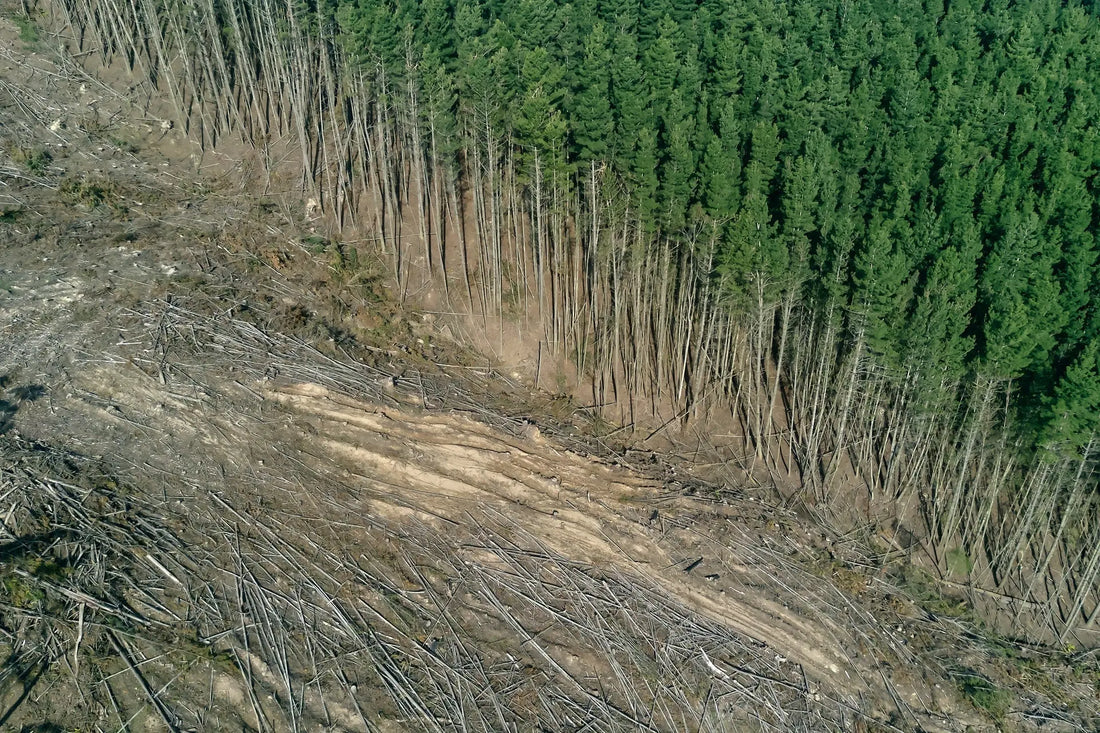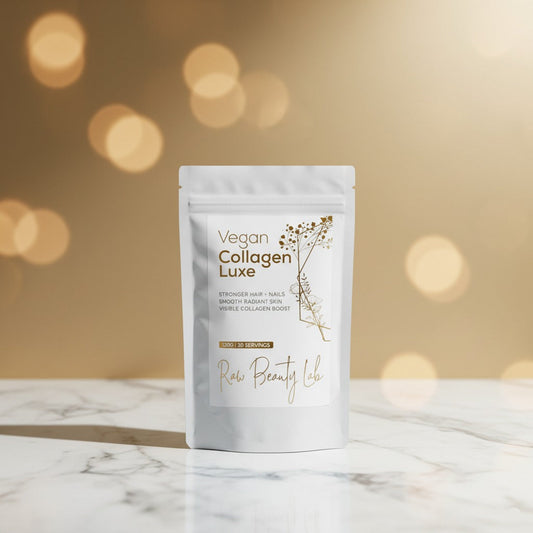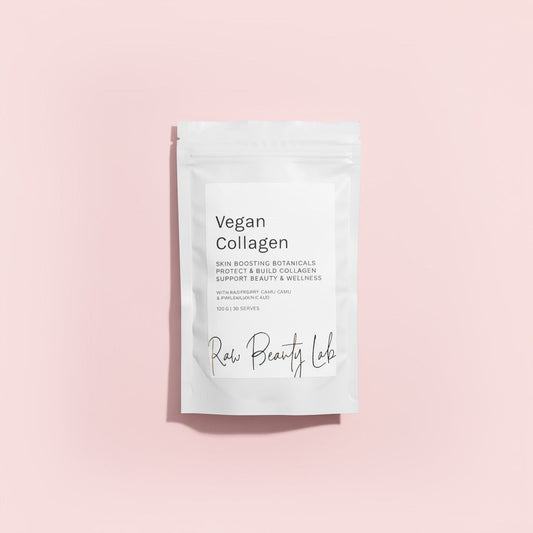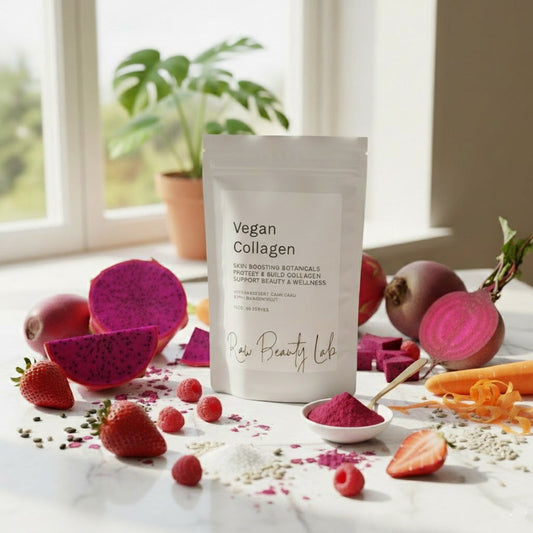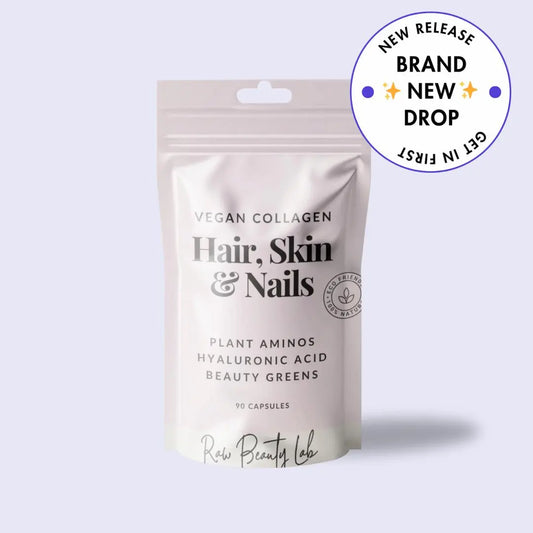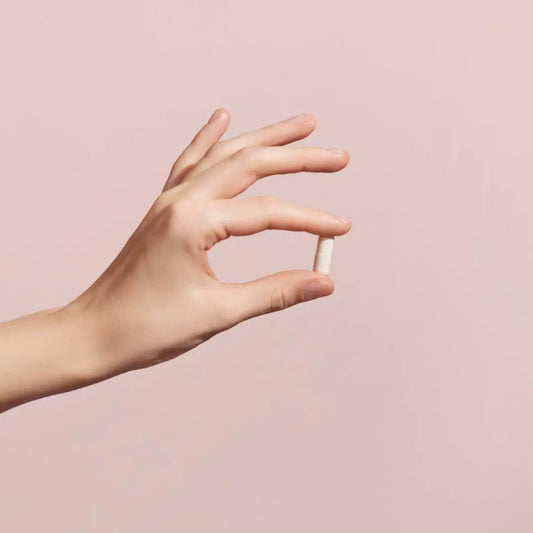Table of contents
Whether you’re half asleep in the morning or exhausted after a long day, I’m guessing the last thing on your mind when using your skincare or make-up products is the question ‘is it sustainable?’ The convenience of on-the-go cosmetics and using single use wipes may be making our lives easier, but what happens when the place we call home is being damaged by our actions?
Thankfully, the conversation about the future of our planet is becoming more and more prominent in the world, and in recent years, the attention has shifted towards sustainable (or lack thereof) practices, in the beauty industry.
Where is the Beauty Industry Going Wrong?
The beauty industry is all about the experience. The umpteen layers of tissue paper, cardboard and plastic that sit between you and your new age-defying serum makes you feel like you’re opening the magical doors of Narnia and is essentially what makes unboxing videos so worthy of the Gram! Not to mention the selfies you take with your bestie in glitter, bubble and magnetic single use sheet masks as you enjoy a pamper night in are all worth the 20 seconds of delight you feel when you someone likes your post right?
Ironically, the industry that claims to make us look and feel pretty is leaving behind a legacy that is unveiling the ugliest version of our beautiful planet.

The biggest cause of deforestation in the beauty and food production industries is the use of palm oil. A global study of palm-driven deforestation found that in Southeast Asia, 45% of oil palm plantations came from areas that were forests in 1989. In Indonesia this was 54% and in Malaysia, 40 %.
Although the fuel industry largely contributes to deforestation caused by the cultivation of unsustainable palm oil, this ingredient is found in 70% of all cosmetic products, used primarily as a surfactant and emulsifier – and is enough reason to hold the beauty industry accountable for the deforestation caused by the production of palm oil.
Face Wipes are Destroying Your Skin and the Planet
So, we’ve covered unsustainable ingredients, - now let me move on to the elephant in the room: the make-up wipe! Yes, they’re unbelievably convenient, and they’re the only reason you don’t fall asleep with make-up on every night – but putting the future of our planet in jeopardy for such a small convenience is not a valid excuse anymore.
Firstly, make-up wipes are terrible for your skin! Yes, that orange hue after use may make you think you’ve done a good job, but make-up wipes can’t actually break down make-up. They may just remove the top layer, but the rest of the make-up (and oil and grime from the day) is just being smeared all over your face – gross!
Secondly, dermatologists, aestheticiand and our favourite YouTube beauty gurus advice us not to exfoliate more than a couple times a week, so then why are we physically scrubbing our face with a wipe every day? Not only will this daily trauma increase skin sensitivity, you’re essentially pushing dirt and make-up into your pores and causing inflammation in the deeper layers of your skin.

And finally, if all that wasn’t enough, the drying chemicals used in face wipes are here to join the party. As the main allure of a face wipe is how ‘quick’ they are to use, manufacturers have to use very strong harsh chemicals like denatured alcohol to try and get the make-up off your skin as quickly as possible so your skin ‘feels’ cleaner when in reality it isn’t. But the drying effect of these chemicals can significantly accelerate the aging process as your skin loses moisture. This will increase the appearance of fine lines and wrinkles and the inflammation from the chemicals and physical trauma can cause collagen degradation.
We’ve established that the wipe is doing no favours to your skin, but what are they doing to the planet? Make up wipes are made up of polyester, polypropylene, cotton, wood pulp, and a plethora of other of plastics and tree derived materials making them non-biodegradable with some varieties taking more than 100 years to break down. 93% of all sewage blockages in the UK are actually caused by make-up wipes with one blockage containing 5453 wipes!
Considering the fact that around 1.3 billion make-up wipes are used globally every day, they are polluting our oceans, landfill sites and even beaches at an alarming rate and we are the only ones who can stop their debilitating aftermath on our planets palnt and animal species.

How Can You Make Your Beauty Routine More Sustainable?
1. Install a Recycling Unit in Your Bathroom
A lot of cosmetic and personal care companies do use recyclable packaging but these products still end up in landfill because they were thrown into a normal bin. 90% of kitchen waste was found to be recycled, but only 50% of bathroom waste, like empty shampoo and toothpaste containers weren’t recycled. Why? Because it’s an inconvenience to recycle them, causing 2.7 billion plastic bottles to end up as landfill annually.
To stop the trip to the recycling point every time you empty a product becoming an inconvenience, add a second waste unit in your bathroom and empty it into the recycling bin as you would empty your normal waste in the bin. Companies like Boots and Garnier are partnering up with recycling firms and giving customers points every time they return their empty personal care bottles to the store during their next visit, which can then be used for their shopping or donated to a non-profit group.

2. Support Ethical Companies That Use Sustainable Packaging
Thankfully, a lot of skincare, cosmetic and beauty supplement companies are making the switch to eco-friendly and compostable packaging or just reducing unnecessary packaging in general. The good news for you is that these companies are usually very vocal and transparent about their efforts to choose sustainable or reusable packaging so you can make the switch very easily! If you want to find out more about the best sustainable brands, check out this post here.

3. Read Food and Cosmetic Labels
I know it’s time consuming, and educating yourself on what all the ingredients and the logo’s mean doesn’t have as much appeal, but as we established above, the health of the planet far surpasses your convenience. To make things easier, looking out specifically for 2 logos – the soil association and the leaping bunny (in the images below). The soil association certifies that companies are using 100% organic and natural ingredients in their products that are farmed in a way that supports wildlife, reduces carbon emissions and promote carbon sequestration within soil (from the atmosphere). The leaping bunny and cruelty free UK programmes ensures products aren’t tested on animals.

I should also mention here that, with the issues surrounding the use of palm oil, should we just boycott it out of our lives? Surprisingly, the answer here is no. Palm oil is actually one of the most efficient and economical plants that has an oil yield three times greater than alternative plants such as coconut, sunflower or rapeseed. If we stopped using palm oil, we would need a lot more land to grow more of the alternative crops to produce the same volume of palm oil.
The issue with palm oil occurs when existing forests that house diverse ecological habitats are stripped down and replaced with a nondiverse palm oil crop which can’t house any of these animals.
So, what should you do? Look for products where the palm oil used in the product is sustainably sourced, which would indicate that no further deforestation or loss of animal or plant life had to occur to produce palm oil crops.

4. Switch Single Use Wipes and Cotton Rounds for Reusable Make Up Wipes
You knew this was coming – if not from me, then from all the different reusable cleansing pads and cloths that are popping up in the toiletries section of your local retailer. Reusable pads are hundreds of times better for the planet and your skin, as they are made with skin friendly materials like bamboo and cotton that can gently clean your skin without any harsh physical exfoliation. The Raw Beauty Lab facial cleansing pad doesn’t even require a cleanser, simply wet the pad and swipe across your face! These options are better for you, your wallet and the planet – what do you have to lose?

5. Buy Raw Beauty Lab’s Vegan Collagen
I know you’re probably confused by this option, but let me explain. Firstly, we believe in ingestible beauty (no that doesn’t involve eating your mango flavoured moisturiser), where you nourish your body with healthy phytonutrients and allow them to work on building collagen and eliminating fine lines from within and keeping your topical skincare routine fairly minimal (which would reduce waste from additional empty serum and toner bottles).
However, you can also help by supporting us on our mission to help build up our plant’s forests again. We are very proud to announce that we have partnered up with Tress for the Future to help play our part in saving the planet.
They are an incredible organisation that are working to reduce the effects of climate change by training farmers to plant trees and nurture their own tree gardens in rural communities in Sub-saharan Africa. They help farmers rehabilitate the soil in their land by training them to plant and nurture thousands of trees which can help improve soil quality. This soil can then be used for them to grow fruits and vegetables which can help them gain an income and help them access organic, nutritionally dense food.

They work in Cameroon, Kenya, Senegal, Uganda, and Tanzania to help these countries recover their forests and help the local farmers build a livelihood for themselves and their families whilst saving the future of the planet!
So how does this involve you? Well, to support their beautiful mission, we have partnered with them and made a pledge to plant a tree for every order you make! So, the more collagen bought by our Raw Beauty Family, the more trees we can plant together to help re-establish Mother Nature’s forests and the ecological diversity within them.
To find out more about their work and to understand how you can make a difference click hereor visit their website here. Will you join us to help support the lives of our peers in the developing world and save the future of the planet?
The current prognosis of our future on the planet is bleak at best. But it’s still not too late. If we all do our part to make our beauty routines and our daily practices more eco-friendly, we can mitigate the effects of climate change and make our planet as beautiful and as diverse as it once was! Do your part, act now!
